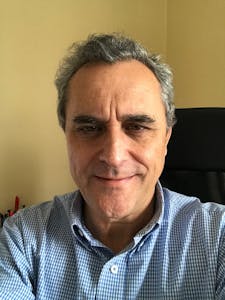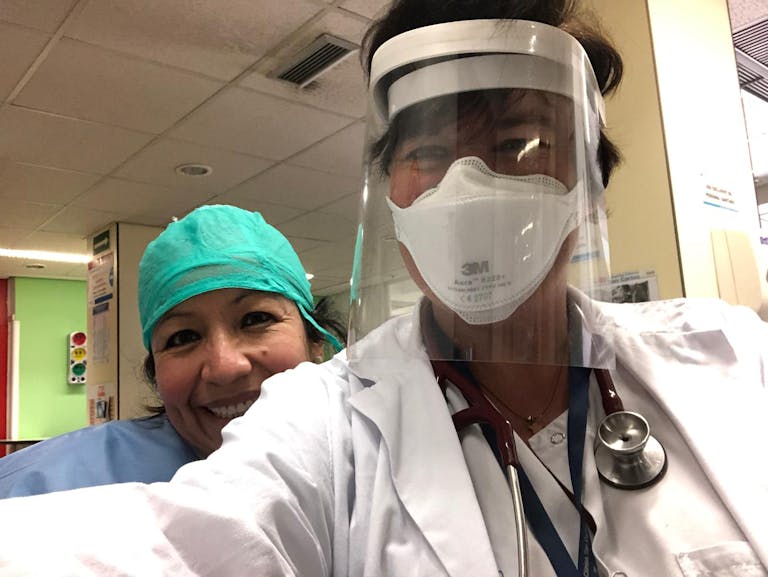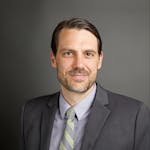
Dr. Vicente Estrada is an infectious disease doctor in Madrid, Spain who has dedicated his career to studying and fighting HIV. But when Madrid became a hotspot for COVID-19, Dr. Estrada and his colleagues, a group that included gynecologists and dermatologists, pivoted their work to help find treatments for the disease devastating his city and others around the world.
“This pandemic has changed my job and my activities, and I’m moving to cover it,” he said. “All my time at this moment is devoted to this pandemic.”
Through the leadership of the World Health Organization, Dr. Estrada and hundreds of other doctors around the world are now working together to find an effective treatment for COVID-19 through WHO’s Solidarity Clinical Trial.
More than three million cases of COVID-19 have been confirmed worldwide, with approximately 70,000 new cases each day. The death toll continues to rise as the virus devastates families, societies and economies. WHO has stepped up to address this critical health crisis in the most ambitious and extensive search for treatments ever conducted. Through the Solidarity Clinical Trial, WHO is leveraging its ability to drive worldwide collaboration and research to test a range of possible treatment options.
Mobilizing Action to find a Treatment
With the Solidarity Clinical Trial, WHO has used its international reach and convening power to speed up and scale up randomized clinical trials around the world. By enrolling an unprecedented number of patients in a single randomized clinical trial carried out across 100 countries, WHO is able to test four possible treatment options at a rate that aims to be 80% faster than a traditional trial.
Through donations from drug manufacturers, WHO has been able to provide potential treatment options for these clinical trials, alleviating the financial and procurement responsibility of already overburdened hospitals.
“We couldn’t have obtained these drugs outside a clinical trial,” Dr. Estrada said.

Ensuring Equitable Access
Dr. Estrada estimates that the Solidarity Clinical Trial could release preliminary results in as little as three weeks. One daunting challenge remains, however: the mass manufacturing and distribution of proven treatment drugs. Dr. Estrada is particularly worried about the accessibility of treatments in low income countries.
“If these drugs are shown to be effective, I’m concerned about the high cost,” he said.
Last week, the United Nations Secretary-General António Guterres, urged the international community to ensure that treatments and vaccines be made available to all as a “global public good.”
“The world needs the development, production and equitable delivery of safe and effective COVID-19 vaccine, therapeutics and diagnostics,” the Secretary-General said. “Not a vaccine or treatments for one country or one region or one-half of the world — but a vaccine and treatment that are affordable, safe, effective, easily-administered and universally available — for everyone, everywhere.”
To that end, WHO has brought leaders and partners together to launch the Access to COVID-19 Tools (ACT) Accelerator, a global collaboration to speed the development, production, and equitable access to new COVID-19 therapeutics, diagnostics, and vaccines. Dr. Tedros Adhanom Ghebreyesus, WHO Director-General stressed, “Inequity is unacceptable.”
“All tools to address COVID-19 must be available to all. In the fight against COVID-19, no one should be left behind.”
WHO is not only leading the global search for treatments through the Solidarity Clinical Trial, but is also ensuring that when a treatment is found, all COVID-19 patients around the world will have access to it.

Until then, medical professionals like Dr. Estrada remain on the frontlines of this health crisis, treating patients and researching medicines and vaccines. When asked what gives him hope, Dr. Estrada answered unequivocally. It is “the solidarity of the health professionals,” he said. “And the unconditional dedication to their work.”
donate today
Every donation makes a difference. Support WHO’s life-saving efforts to respond to the COVID-19 pandemic by giving to the COVID-19 Solidarity Response Fund. Donations made via Facebook will be matched up to $10,000,000. Through June 30, 2020, for every $1 you donate here, Google.org will donate $2, up to $5,000,000.
Featured Photo: WHO



 View All Blog Posts
View All Blog Posts




